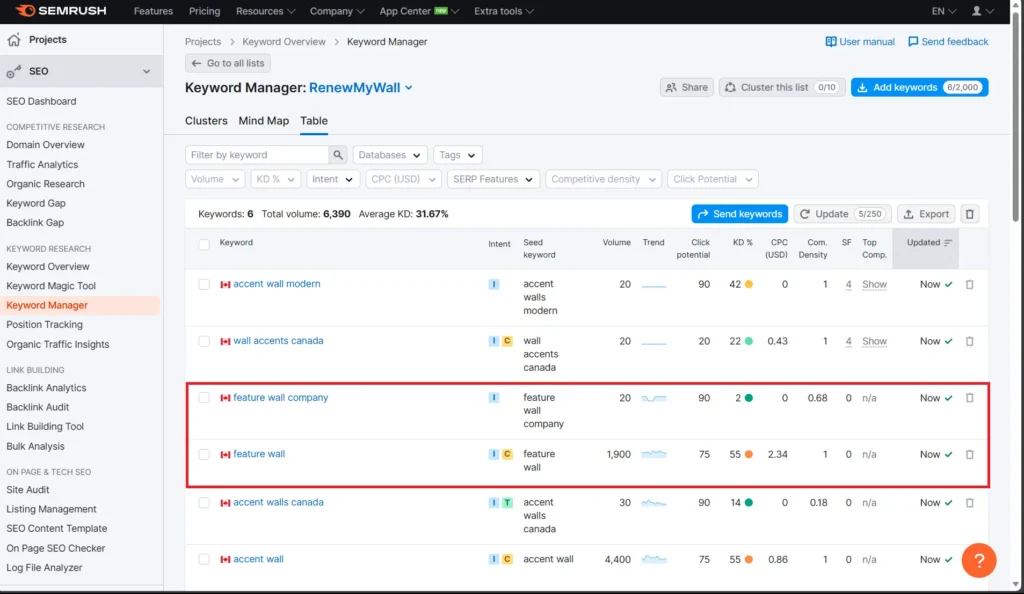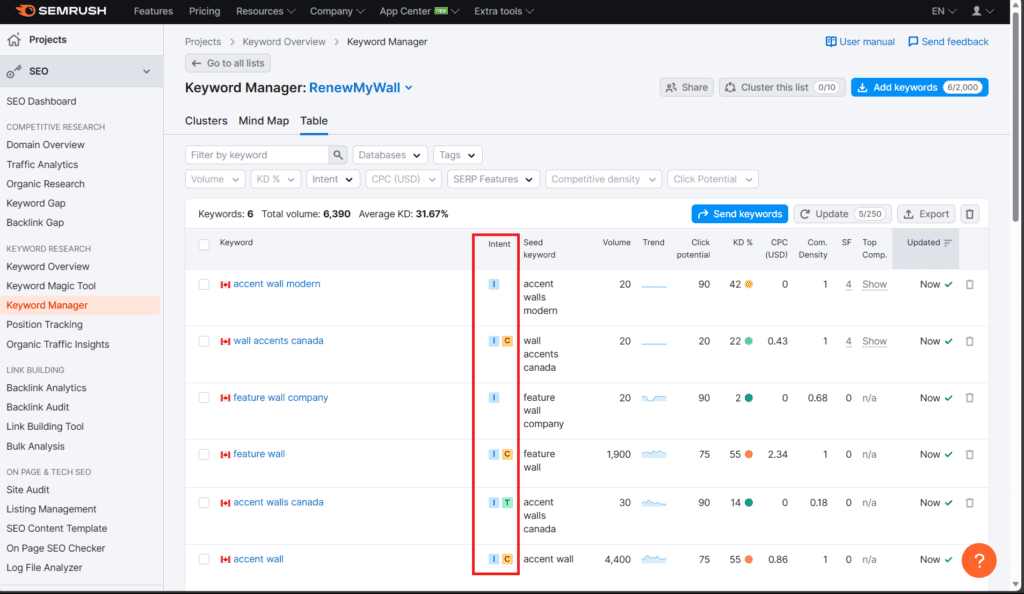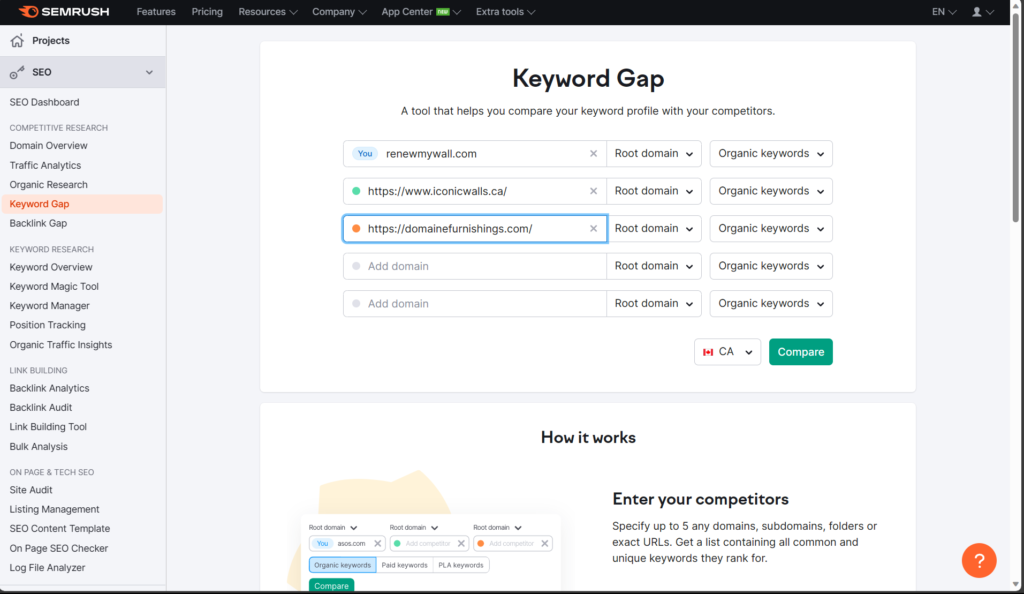Best Practices for SEO Keyword Research
Understanding keywords is crucial for making your website visible on search engines like Google. It involves identifying and selecting the right keywords that people are likely to use when searching for information, products, or services related to your website or business.
Here are Some Key Points to Keep in Mind when Conducting SEO Keyword Research:
Relevance:
Let’s start by identifying keywords that are relevant to your website’s content, products, or services. These keywords should accurately reflect what your website is about.
Search Volume:
We search for keywords that a good number of people are looking for. Tools like Google Keyword Planner or SEMrush can help us determine how often a keyword is searched for each month.


User Intent:
Understand the intent behind the keywords. Are users looking for information, products, or local services? Let’s customize your content to align with what users are looking for.
Competitor Analysis:
Let’s analyze competitors’ websites to see which keywords they are targeting successfully. This can provide valuable insights into our own keyword strategy.


Long-Tail Keywords:
Long-tail keywords are longer and more detailed phrases that people use in their searches. While they may have lower search volume, they often convert better because they are more specific to the user’s intent. We make sure to incorporate a few longer and more specific keyword phrases into your strategy.
Competition Level:
Keyword difficulty is a reflection of how many other websites are also trying to rank for the same keyword. The more websites targeting a keyword, the higher the competition.


Content Optimization:
Once we’ve identified our target keywords, we optimize your website’s content, including headings, meta titles, meta descriptions, and body content, to include these keywords naturally.
Monitoring and Adjusting:
SEO is an ongoing process. We regularly monitor our keyword rankings and traffic. Make changes to your plan as required, depending on how well it’s working.
Keyword Variations:
Don’t limit yourself to one keyword per page. Use variations of our target keyword throughout your content to capture a broader audience.
Stay Informed:
SEO is always evolving. Stay up-to-date with industry trends and algorithm changes to ensure our keyword strategy remains effective.
Looking for an SEO Specialist for your Business?
"Let's take it to the next level!"
If you’re a business owner, you might be wondering why it’s essential to enlist the help of an SEO Specialist to improve your website.
If SEO (Search Engine Optimization) isn’t your strong suit, you could run into some problems that might make you scratch your head. Let me help you break down these challenges you could encounter when you don’t have a good grasp of SEO.
Together, we’ll harness the magic of Search Engine Optimization strategy to ensure your brand stands out. Let’s embark on this exciting journey of growth and success!

